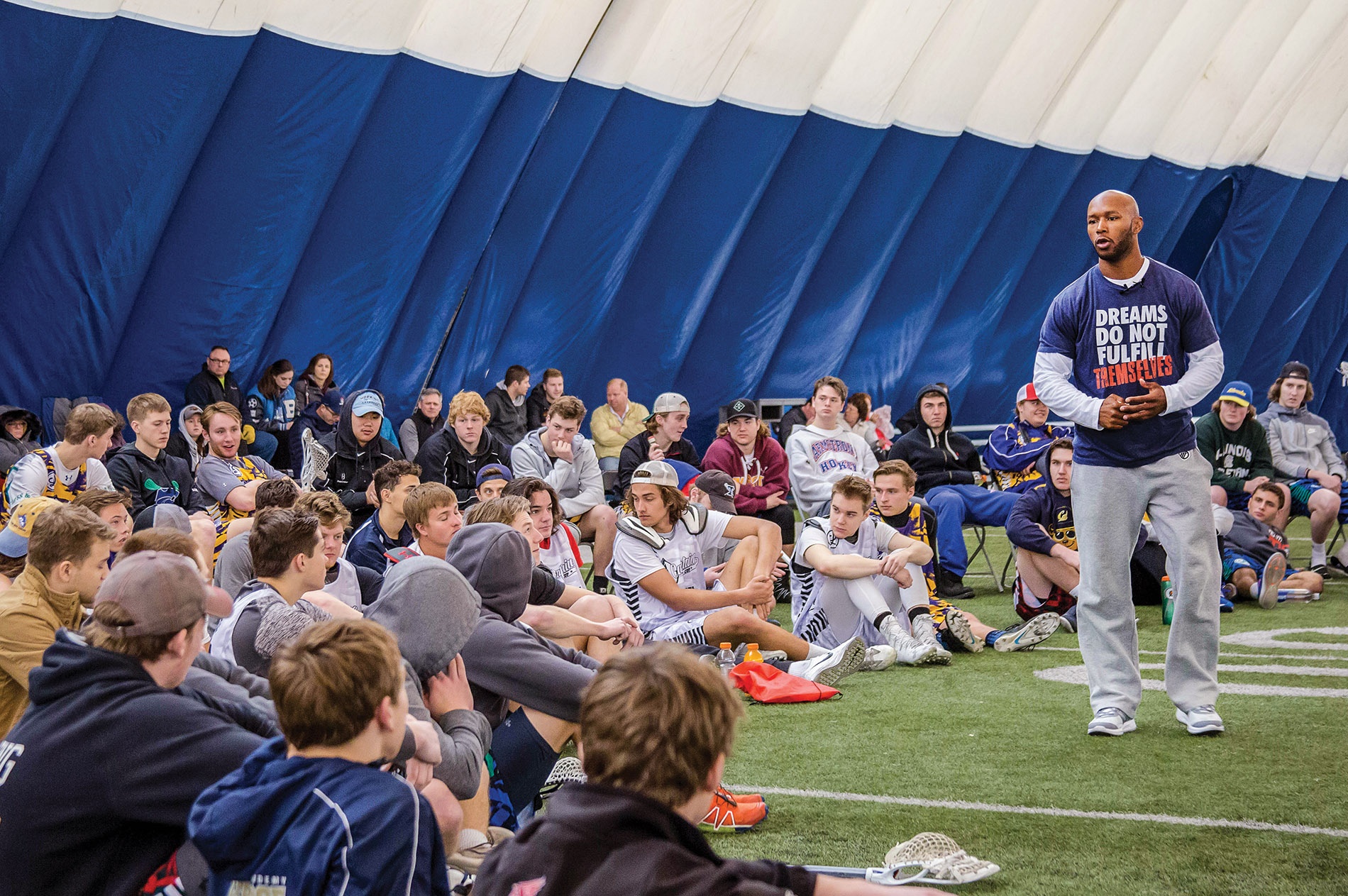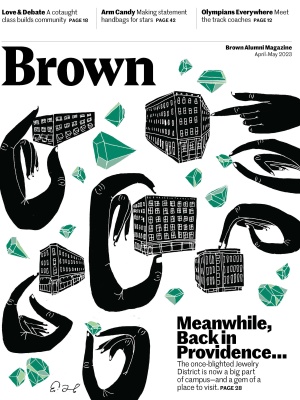Few sports conjure up images of white privilege—specifically, New England prep schools and elite colleges—more than lacrosse, where even just a good stick can cost up to $300. That fact is not lost on Chazz Woodson ’05, whose Brooklyn-born father went to Middlebury College and there became one of the few Black students on any school lacrosse team nationwide. He passed the love of the sport down to his son, who ended up at Virginia’s Norfolk Academy being, like his father, virtually the only Black player on the lacrosse team—a status he carried over to the team at Brown, where he had few Black predecessors or successors.
None of that, however, kept Woodson from loving the sport—and excelling at it. At Brown he was selected as All-Ivy League twice and was team captain his senior year. “It has a little bit of everything,” Woodson says. “To the novice eye, it most closely resembles hockey, but it requires the field awareness and movement of soccer or basketball and it’s got the physicality of football. It requires skill and finesse, throwing and catching with nets at top speed. You can’t get away with being just athletic.”
He loved the sport so much, in fact, that he played professionally with Major League Lacrosse for 12 years after Brown, juggling that with paid jobs like teaching, running lacrosse camps, and giving private lessons. At a certain point, wanting to diversify the sport, he and fellow Black pro lacrosse player Kyle Harrison started the Sankofa Lacrosse Foundation—out of which grew an all-Black team. “It was a powerful experience for many of us because we’d never had the opportunity to play among other Black players,” he says. The team lost to Brown’s team—but beat the English national team. Sankofa still donates money to families experiencing hardship, as well as for lacrosse-camp scholarships and school books for kids.
In 2020, Woodson—after teaching at Ransom Everglades School in Miami—became head lacrosse coach at Hampton University, an HBCU (historically Black college or university) in Virginia, where he grew up. There, he leads the only Division 1 lacrosse team from an HBCU—one which, incidentally, both his aunt and uncle attended. “We’re recruiting from all across the nation and we’re not hurting for interest,” he says of Hampton’s team, which he feels is not yet at the level of other college Division 1 teams. But he thoroughly intends to get it there: “Once we start winning,” he says, “we’ll be a historic program—there’ll be no other team like it.”





